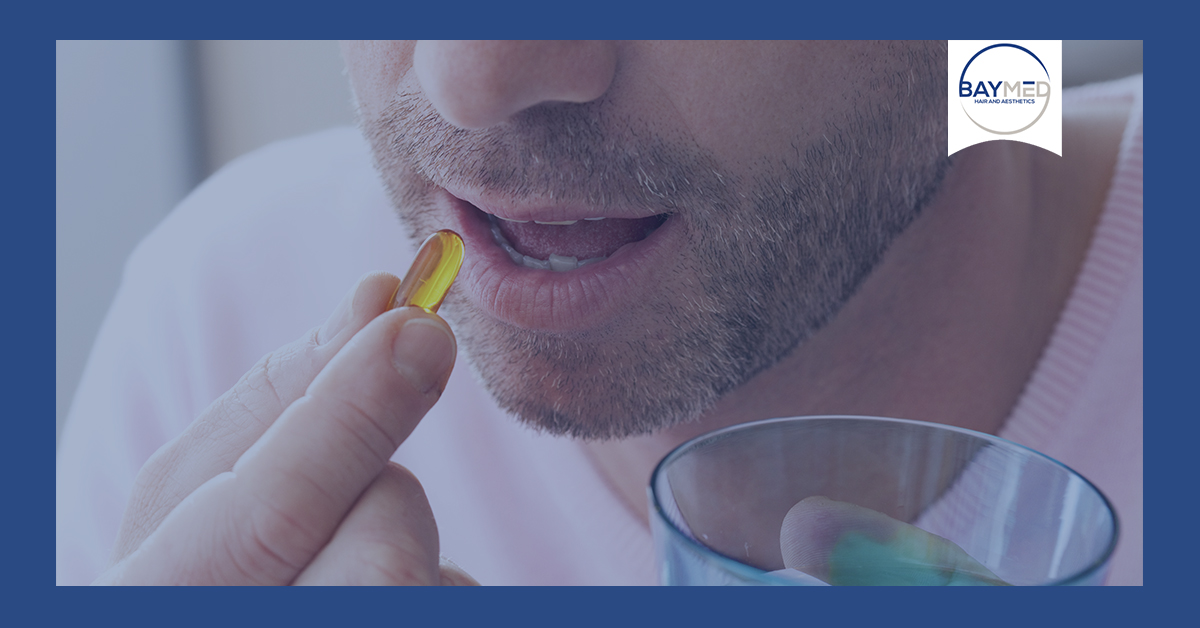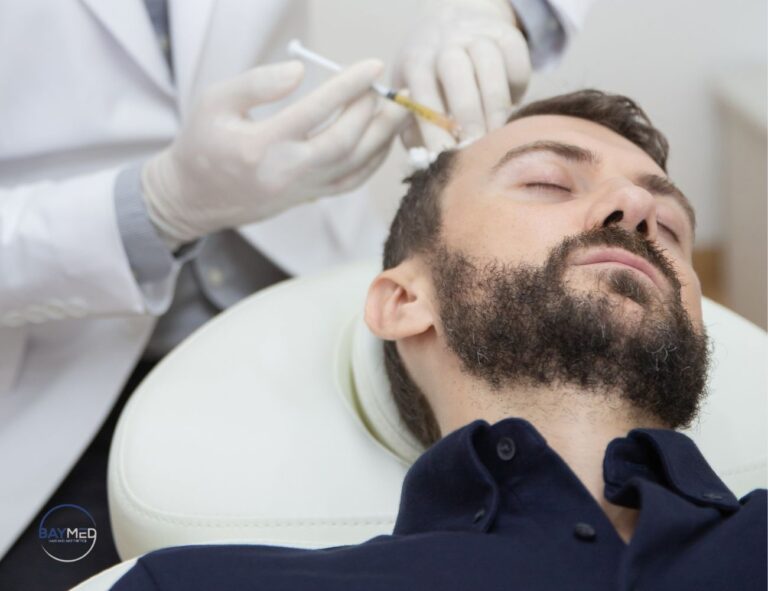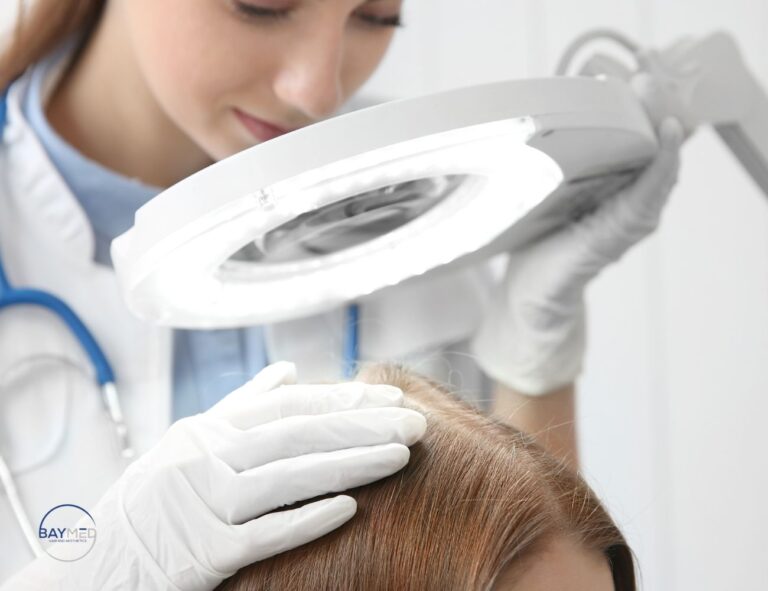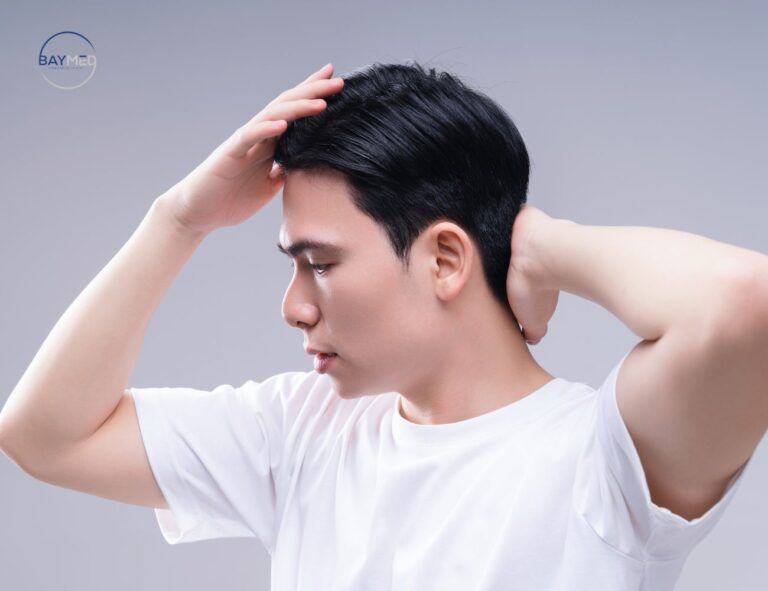Malnutrition and poor nutrition are known factors in hair loss. It stands to reason then that proper nutrition can aid in hair health.
But knowing what to take to promote hair growth – and how much – can be as confusing as trying to figure out what exactly is a healthy diet. Thankfully, Bay Med Hair can help!
What Is the Best Supplement for Hair Health?
Dermatologists told Prevention magazine that taking the right combination of vitamins and other supplements for your hair can help address a myriad of hair health issues. One researcher doctor suggested that the supplements target overall health, which in turn targets hair growth.
“We know that certain conditions like nutritional or vitamin deficiencies are associated with thinning hair – for example, in anemia and vitamin D deficiency, patients may notice hair loss,” he says. “So, we always want to make sure if vitamin D and iron levels are where they should be.”
In short, your hair needs building blocks, just like any other part of your body. But your body doesn’t give your hair priority. If you’re low on iron, the body will give it to other cells before it gives it to your hair.
Research indicates that most people get plenty of the B vitamins, Vitamin D, biotin, and others through their diet. When they do not, adding them in supplement form can help combat hair loss and even promote new hair growth.
Can Supplements Help Grow Hair?
Forbes magazine points out that supplements will not work for everyone, but they will work for some people. The reasoning for that is simple: Not all hair loss is the same.
If your hair loss happens due to a nutritional deficiency (such as too little Vitamin A or zinc) then adding a supplement to your routine can help stop additional hair loss and promote healthy hair growth. However, those same supplements can actually make hair loss worse if you already have too much of that nutrient.
What Vitamin Am I Deficient in If My Hair Is Falling Out?
Dieticians suggest that deficiencies in Vitamin B complex, Vitamin C, and Vitamin D can all contribute to hair loss. In some cases, extreme calorie restrictions lead to hair loss because the body simply isn’t getting the base nutrients it needs. Taking a multi-vitamin that includes these three (as well as zinc and iron) can help overcome nutrition related hair loss.
Researchers have found that micronutrients play an important role in many forms of hair loss. “Micronutrients are major elements in the normal hair follicle cycle, playing a role in cellular turnover, a frequent occurrence in the matrix cells in the follicle bulb that are rapidly dividing. Management of alopecia is an essential aspect of clinical dermatology given the prevalence of hair loss and its significant impact on patients’ quality of life.”
So how do you know if your hair loss is related to nutrition, and which supplements you need? Ask us at Bay Med Hair. When you consult with our medical staff about hair loss, we can help analyze your diet and nutrition to see if you will benefit from a supplement.
Our team can further offer testing to help determine the cause of your hair loss and the best prevention factors.
BayMed Hair & Aesthetics Knows What Supplements Are Best
Men’s health month is a great time to consider your nutritional needs and how they relate to hair loss. But don’t assume that hair loss is the only reason to consider supplements. The Vitamin B complex helps promote energy and keep your nervous system healthy, and Vitamin C can help you ward off illness. Those two things alone can help prevent hair loss as stress and illness often contribute to hair loss.
Confused by all the supplements available and not sure which is best for your healthy hair and body? We can help. Call us today.






